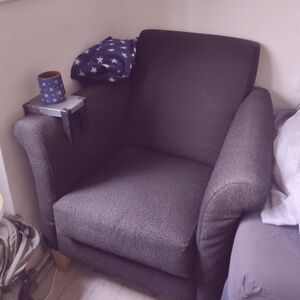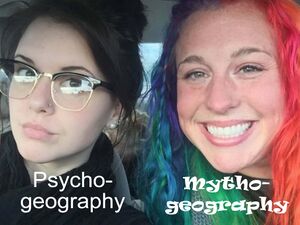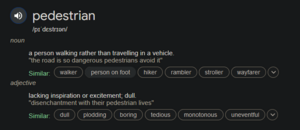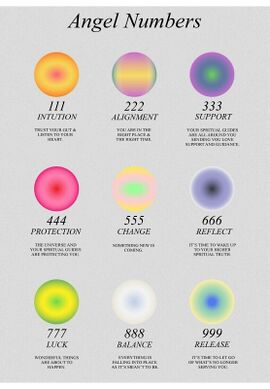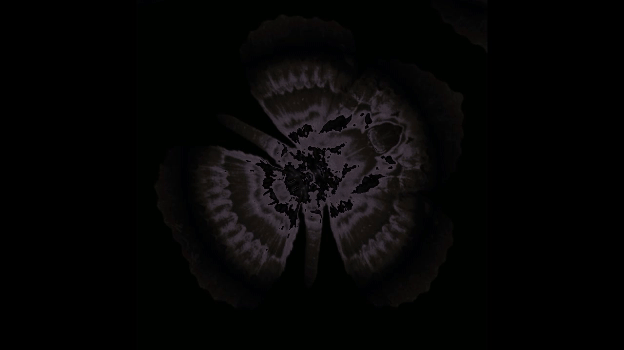Loitering Glossary
A place to loiter on the wiki :)
Benchmarking
verb
verb: **benchmark**; 3rd person present: **benchmarks**; past tense: **benchmarked**; past participle: **benchmarked**; gerund or present participle: **benchmarking**
1. evaluate (something) by comparison with a standard.
"we are **benchmarking** our performance **against** external criteria"
When walking around, make a pitstop at a bench. Just sit there in the middle part. Look forward. Make yourself comfortable and take an unlimited time to see evaluate the premise. What does the neighborhood look like, what is the demographic. How much is it designed? Is it possible for anyone to be there?
Make a list of the specs.
Is there anything that could be tweaked?
Be your own tracking device
In a smart city, be a smart civilian, look at the surroundings
from your own point of critique, make notes
| Oostzeedijk Beneden | Wikipedia paraphrased translation: The Oostzeedijk is a high dyke in Rotterdam. On the Upperpart of the Oostzeedijk there is a tram lane. Close to the Voorschoterlaan there's a hill in between of the upper and lower part of the dyke. |
|---|---|
| ALTITUDE | 51.921149149128134 |
| LATITUDE | 4.508842999837357 |
| DESCRIPTION | *hill Kralingen* |
| INTENTIONS | I was walking and my brother and mother were in their Scootmobiles. We were looking for a place to eat and drink after a nice walk in the botanical garden. It was sunny and we thought "let's go up the dike to see". Since there was a hill going upwards that was wide enough for a scootmobile. We continued going on to the pavement towards Oostplein where we stumbled upon a beautiful big yet inconvenient piece of green. This resulted in two scootmobiles having to go off since there were no 'hellinkjes' (ramps). So imagine two of these safe scootmobiles, not being able to off pavement, just going in reverse until you can finally turn. |
| FRUSTRATIONS | The lack of accountability. It's not necessarily the complaint of a tree 'standing in the way' but more the lack of once again a ramp to just have the possibility to cross the street in order to continue getting to your location. Because at this point it only seems to be a place to just park your bike. |
https://manuelbuerger.com/theoryofthebench
Counter-tourism
Tourism is boring
Interactionism
Studying the ways that interactions (defined as actions, reactions and mutual adaptation) shape and are shaped by individuals within a broader social context. It is connected to the phenomenological concept of intentionality and to the reader-response theory, in the sense that all parties in an interaction are shaped by the other parties.
Loitering in Theory
Take a step forward if... ... you have crossed a task of your to do list ... you know what you'll have for dinner tonight ... you have send a message to your mother ... you have exercised recently ... you have made plans with a friend for this weekend ... you have completed your vocab exercises for the day ... you have prepared for class tomorrow ... you have folded your laundry ... you have send a postcard to your mother, you ungrateful pig ... you have made plans with a friend for this weekend ... you have reconsidered if you shouldn't be looking for work ... you have still not crossed anything of your todo list, have you? ... you just can't send that message, can you? Such a disappointment ... you are stuck and will never get anywhere like this ... you know this ... you let it happen every day. Why?
Just like one might wander an urban landscape, one might wander their mind. This can be pleasant, extremely pleasant. A book might take you by the hand. Music might help you navigate it in new ways. It can be a most intimate moment with yourself. My mind doesn't like me loafing around. There's a patrol keeping close watch. No nonsense, explain yourself. Don't you have anything better to do? Just do it, then! Loitering in theory is non-trivial. Often, the interests of the facilitator of a space are at conflict with the loiterer in that space. A theoretical loiterer bears responsibility both for mindless wandering, as well as safeguarding their mind. For me, the ability to enjoy a stroll though my thoughts is the best indicator for how well I'm doing with respects to stress levels, anxiety and mental health over all.
Mythogeography
Collective walking! Peripheral observations! Bodily immersion! Pilgrimages! Ecological activism!
Mythogeography looks at multiplicity, it focuses on layers of stories embedded in places, while critically engaging with them.It blends geography with personal narratives, getting immersed in explorations that become site-specific performative acts.
Psychogeography was all about emotions. It became theoretical quite easily when that nice sparkly patina of avant-gardism faded away. Kinda individualistic before, now even more, far from collectivity, far away in the olympus of the dusty-20th-century-avant-garde-movements.
Mythogeography, instead, is the artsy younger sibling, the one that did theatre school and is all about doing 🎤🎭performances🎸🎶, having meditative experiences around rubbles, crying about disrupting the academy, capitalism, the whole reality if possible.
Psychogeography likes to linger in theory without necessarily arriving anywhere.
It's not like everything needs to be a glossary entry, everything should be an experience!
Does hugging trees count? Yes, probably. Is protesting mythogeographical? Yes, probably
Liminal spaces
Transitory, in-between spaces which lack identity yet feel strangely familiar. Hotel rooms, hallways, airports, trains stations... Their structure and organization is similar through-out, same as how whenever you enter into a McDonalds in a different country, you are struck by the similarity to all of the other McDonalds you've ever been to. Some find this familiarity a place of comfort and anonymity, or a place to be social in and loiter around in, while others find the uncanny nature of such spaces worthy of horror stories or fiction.
Non-places
The non-places of our everyday life are places of anonymity, circulation, communication and consumption, opposite from the home. An intimate space such as home is structured according to human features, while non-places are made of instructions in which the individual loses themself (and their relation to the place). In non-places the only identity you are offered as a passerby is a consumer one, and you are stripped of all other identity signifiers and information. A place cannot become a non-place no matter how much it has been annihilated, since it will still bear a history. Commemorative places are full or history, and as such, cannot take on the anonymity and lack of identity a non-place has.
Smooth_city
A contemporary urban condition marked by escalating levels of 'perfection', efficiency, control, and the deliberate removal of any irregularities or alternatives. In a smooth city, urban spaces are meticulously sanitized and life is streamlined into a uniform experience. While such cities provide safe, clean, and efficient environments, they also undermine the democratic and emancipatory aspects of urban life by allowing little room for anything that doesn't fit the image of the "norm".
Third Places
A place to socialize which in not your work or your home but a [secret] third place.
"God created the world but the Dutch created the Netherlands"
A saying in the Netherlands that came about because about 2/3 of the country was underwater, and raised from it through dykes, dunes and pumps. This process is also called land reclamation, and originated here because of the prevention of floods. As a result of people meddling with what used to be swampland, so much of the landscape of the Netherlands is artificial, uncanny even.
Pedestrian
What does it mean to be a pedestrian
I can not ride a bike, that made me a "WALKER"
my .walking my way to get to places is not that interesting walking around to empty my brain
When I'm saying to someone that I'm going to go for a walk, I sometimes get the response like: "Where to?" as if I always to need to reach a goal
my parents used to ask me to do chores and favors because oh no why would I go on walks without any purpose, goals, or benefits
walking just a way of getting out of my stuffy bubble in the house to empty my brain, to look around and just be zigzagging through the streets.
The purpose is more to walk something off rather than aiming towards a spot. It is away to maintain some space in the open
I prefer walking to places if the weather isn't too extreme, I'm never in a hurry transport is for A-B, for 1 to 0 walking is for neither, rather aimless in direction but aimful in health it's good for clearing up inner storms
either listening to the surroundings or closing off from them
I feel where people do the flaneuring I tend to want to be unnoticed, accept for greeting / politeness but other than that I just temporarily claim my walking distances as I were to be alone in a train
I talk about this walking because I feel that dull approach about what it means to be a pedestrian is rather bullshit. Plenty of people tend to want to ride their bikes, cars to get to places. I can not ride a bike due to balance problem, I never felt the urge to be the transporter vehiclist.
As if being a pedestrian isn't productive enough, as if it is bad to be dull.
What does it mean to be a pedestrian?
pen-plotting-state-of-mind
"Pen plotting is not a technology, it is a methodology. It is an approach to the image, it is grabbing the pen intentionally. It is a consciousness of where you are moving, it is the embodiement of thought and emotion. It is the mathematically discrete point and finite line. It is an abstraction of space through time.
Pen plotting is the imaginary."
Apophenia
Apophenia is the tendency to perceive meaningful connections between unrelated things.
⊹ For example, the feeling of wonder and meaning associated with angel numbers can be explained by a perceptual error known as apophenia.
Can we transform this into inspiration for art or other therapeutic healing methods to enhance one's happiness? If we could find a balance between embracing and managing apophenia, could it be an interesting way to help you think more creatively?





